2025-06-10As GOP weighs Obamacare cuts, the party's constituents are more likely to use marketplace coverage, poll finds
This is CNBC’s live blog covering European markets.Rolls-Royce up 2% after firm backed to build Britain’s first small modular nuclear reactorsRonny Hartmann | Afp | Getty ImagesA Rolls-Royce aircraft engine on view during the Hannover Messe industrial trade fair on March 31, 2025.Shares of British aerospace group Rolls-Royce were last seen trading 2% higher after the company received backing from the U.K. government to build the country’s first small modular nuclear reactors.The announcement follows a two-year selection process and reaffirms Britain’s embrace of nuclear power, particularly as it also pledged on Tuesday to invest £14.2 billion ($19.2 billion) to build the large Sizewell C power station in eastern England.Read more on the news here.— Sam MeredithApollo eyes $100 billion Germany investment as private capital swerves U.S. turmoil for EuropeMEGA, or “Make Europe Great Again,” was a hot topic at this year’s biggest private markets event last week.The about-turn in sentiment toward the continent was illustrated no better than when the boss of industry juggernaut Apollo said he saw the opportunity to put $100 billion “in the ground” in Germany over the next decade.“I think many investors in Europe see the opportunity, and many investors in U.S. see the opportunity right now in Europe. They see it across the private equity ecosystem. They also see it across the credit ecosystem,” Apollo Global Management President Jim Zelter said during a keynote interview.Read the full story here. — Jenni ReidUK regulator confirms launch of private company trading systemA new form of trading platform allowing private companies to sell shares in short-term trading windows has been given the final green light by U.K. regulators and is set to launch later this year.Known as PISCES — or the “Private Intermittent Securities and Capital Exchange System” — the system will allow “institutional investors, high-net-worth individuals, sophisticated investors and employees of participating companies” to trade in shares of a non-listed company for limited periods as short as a day, according to the Financial Conduct Authority.Toby Melville | ReutersA worker shelters from the rain as he passes the London Stock Exchange in the City of London.The new market is a response to many businesses choosing to stay private for longer periods, particularly in the U.K. where there are concerns about undervaluation and risk-aversion among investors. The government-backed system aims to provide more opportunities for investors to access growth companies and means for existing shareholders to exit or change their positions.Companies will have control of the floor and ceiling of their share prices and who is able to buy them, the FCA said, citing a demand for investors to “trade private company shares easily and efficiently in an organised marketplace.”— Jenni ReidUK government borrowing costs fall after labor market dataU.K. government bonds — known as gilts — have risen across the board after the Office for National Statistics released its latest data on the British labor market.While the unemployment rate was in line with expectations, average wage growth at 5.3% came in below the 5.5% expected by economists polled by Reuters. The data also showed a 7.9% decline in job openings in the three months to April, when compared to the previous three-month period.The yield on the benchmark 10-year gilt fell 7 basis points on Tuesday morning, with 5-year gilt yields shedding 6 basis points by 9:56 a.m. in London. Yields on the 2-year gilt were down by 7 basis points, while long-dated 30-year gilt yields moved 6 basis points lower.Bond yields and prices move in opposite directions, so as prices increase with higher demand, yields fall.— Chloe TaylorFund managers lobby Congress over Section 899 to avert foreign investors leaving the U.S.CNBC’s Ganesh Rao has been reporting this morning that American fund managers are lobbying Congress over a provision tucked inside President Donald Trump’s tax bill that they say could lead to foreign investors “quickly” pulling investments out of the U.S.The “One Big Beautiful Bill Act,” which passed through the U.S. House of Representatives in May, aims to penalize foreign-owned firms operating in the U.S. and that are from countries with “unfair foreign taxes” under a provision known as Section 899. It is currently being considered by the Senate.The Investment Company Institute (ICI), which represents fund houses in the U.S., is lobbying Congress for an amendment.Read Ganesh’s story here.Renk extends losses, on track for sharpest decline in over a yearBloomberg | Bloomberg | Getty ImagesA Leopard 2 tank gear transmission in a production hall at the Renk AG plant in Augsburg, Germany, on Monday, May 8, 2023.German defense giant Renk extended the losses it notched at the open, last seen trading 9.3% lower — putting it on track for its steepest one-day decline since April 2024.The company’s shares have surged in value since the beginning of the year, gaining around 282%.Renk’s fall on Tuesday comes amid a broad sell-off of European defense stocks, as investors monitor U.S.-China trade talks that are expected to include details on rare earth mineral flows. The minerals are crucial to manufacturing of weaponry and other defense technologies.Other companies in the sector seeing steep losses on Tuesday include Saab, down 4.4%, Hensoldt, down 4%, and Rheinmetall, last seen trading 3.2% lower.— Chloe TaylorNovo Nordisk shares pop on reports of activist investor stakeShares of Novo Nordisk climbed 3.3% following reports that activist hedge fund Parvus Asset Management is building a stake in the Danish pharmaceutical giant in a bid to influence the appointment of its new CEO.The move was reported Monday by the Financial Times, citing sources with knowledge of the details.Obesity drug maker Novo Nordisk last month ousted its longstanding CEO Lars Fruergaard Jørgensen as increased competition has weighed heavily on U.S. sales of its blockbuster Wegovy drug.Neither Novo Nordisk nor London-based Parvus immediately responded to CNBC’s request for comment.— Karen GilchristDefense stocks fall ahead of more U.S.-China trade talksYan Dobronosov | Global Images Ukraine | Getty ImagesA Rheinmetall MAN Military Vehicle on Nov. 20, 2024, in Donetsk Oblast, Ukraine.European defense stocks are notching broad falls this morning, with the regional Stoxx Aerospace and Defense index extending losses to trade 0.8% lower.That puts the index on course for its third consecutive day of declines.Investors are monitoring U.S.-China trade talks, which are set to continue in London on Tuesday. At the center of the talks are critical minerals, on which China imposed export restrictions in April, in response to U.S. tariffs on Chinese exports.Rare earth minerals are critical for the production of weaponry and other defense technologies.German defense giant Rheinmetall was last seen trading 3.4% lower, while Germany’s Renk and Hensoldt were down 8% and 3.1%, respectively.— Chloe TaylorEuropean stocks see mixed openIt’s 10 minutes since the opening bell, and European shares are in mixed territory.The pan-European Stoxx 600 was last seen trading flat. London’s FTSE 100 was up 0.4%, while the German DAX index was down by 0.2%. France’s CAC 40 was last marginally higher.— Chloe TaylorSterling falls after UK labor market updateThe British pound is currently down 0.5% against the U.S. dollar, trading at around $1.35.Sterling has gained so 7.8% against the greenback so far this year.— Chloe TaylorCooling labor market could speed up Bank of England rate cuts, economists sayBloomberg | Bloomberg | Getty ImagesWorkers cross a junction near the Bank of England (BOE) in the City of London, UK, on Tuesday, April 8, 2025. Hiring appetite is weakening in Britain, according to Jack Kennedy, senior economist at Indeed.Reacting to the ONS’ data release, Kennedy pointed to government policies including a minimum wage hike, a raft of new worker protections, and the rising tax burden on employers, as dampening businesses’ willingness to take on staff.“The labour market [is] one characterised by widespread caution, with the dampening impact of April’s rise in employer costs reinforced by global headwinds and uncertainty over the Workers’ Rights Bill,” he said.“The sharper than expected falls in wage growth and payrolled employment suggest a more material pace of cooling may be starting to emerge, which could open the door to a faster pace of interest rate cuts from the Bank of England.”Ruth Gregory, deputy chief U.K. economist at Capital Economics, agreed.“With payrolls falling, the unemployment rate climbing and wage growth easing, today’s labour market release leaves us more confident in our view that the Bank of England will cut interest rates further than investors expect, to 3.50% next year,” she said.Markets are currently not pricing in such a steep reduction in the central bank’s key interest rate, according to LSEG data. According to the data, analysts are overwhelmingly expecting the Bank of England to hold rates steady at 4.25% at its next meeting later this month.“The jobs market is not collapsing,” Gregory stressed. “Indeed, there hasn’t been a big rise in the LFS redundancy rate or HR1 notifications (which firms are required to complete if the plan to lay off staff). But most indicators show labour demand is clearly weakening.”— Chloe TaylorBritish job openings continue steady decline, wage growth coolsThe ONS’s data also showed this morning that job vacancies in the U.K. fell to 736,000 between March and May — a decline of 63,000 openings, or 7.9%, from the previous three-month period.It marked the 35th consecutive decline in job openings. Meanwhile, average earnings (including bonuses) saw a year-on-year increase of 5.3% for the period between February and April. Since spiking to 6.1% in December, annual wage growth in the country has steadily cooled.— Chloe TaylorU.K. unemployment rate rises to 4.6%, in line with expectationsBloomberg | Bloomberg | Getty ImagesA staff wanted sign in the window of a restaurant in the Soho district of London, U.K., on Tuesday, Sept. 7, 2021.Britain’s unemployment rate rose slightly to 4.6% in the three months to April, in line with economist expectations, data from the country’s Office for National Statistics showed this morning.In the previous three-month window to March, U.K. unemployment stood at 4.5%.The U.K.’s economic inactivity rate — an estimate of those aged 16 to 64 who are out of work and either not seeking employment or unable to start work imminently — rose to 21.3% in the three months to April.— Chloe TaylorHere’s what to expect todayInvestors can expect a mix of economic data and earnings out of Europe today. The big release will be the unemployment rate from the U.K., along with figures on average earnings in the country. Economists polled by Reuters are expecting Britain’s unemployment rate to have hit 4.6% in April, up from 4.5% a month earlier.Data on Italian industrial production is also due later on Tuesday.On the earnings front, companies slated to update shareholders on their finances include British firms Paypoint, Assura and Tatton Asset Management.— Chloe TaylorHere are the opening callsShomos Uddin | Moment | Getty ImagesThe City of London is a blend of old and new, with St Paul’s Cathedral close to skyscrapers as well as Roman ruins.Good morning from London, welcome to CNBC’s live blog covering all the action in European financial markets as well as the latest regional and global business news, data and earnings.Futures data from IG suggests London’s FTSE will open 11 points higher at 8,838, Germany’s DAX up 62 points at 24,234, France’s CAC 40 up 23 points at 7,807 and Italy’s FTSE MIB 83 points higher at 40,545.Global markets have been buoyed by trade talks that are taking place between U.S. and Chinese officials in London this week, with hopes rising that both sides can avert large-scale punitive tariffs and a trade war.Global markets will be keeping an eye on the talks, which are set to continue Tuesday.The latest U.K. unemployment figures are also due, but there are no other significant earnings or data reports Tuesday.— Holly EllyattGlobal markets buoyed by China-U.S. talksGlobal markets climbed overnight amid hopes that the U.S. and China will find a way to resolve their trade dispute, with talks between trade officials set to continue in London on Tuesday.Asia-Pacific markets and U.S. stock futures rose Monday night as investors waited for more insights into trade discussions between the U.S. and China. Traders are looking for signs of a deal that doesn’t involve the world’s two largest economies slapping extravagant tariffs on each other.Denis Balibouse | ReutersA car with U.S. Treasury Secretary Scott Bessent leaves a residence where trade talks between Chinese and U.S. delegations take place in Geneva, Switzerland, May 10, 2025. REUTERS/Denis BalibousePresident Donald Trump‘s top trade officials met their Chinese counterparts in London on Monday, with Treasury Secretary Scott Bessent, Commerce Secretary Howard Lutnick and Trade Representative Jamieson Greer negotiating on behalf of the U.S.Trump has authorized Bessent’s team to potentially remove U.S. restrictions on the sales of chipmaking software, jet engine parts and ethane, The Wall Street Journal reported, citing sources familiar with the matter. Trump said Monday that the talks were going well and he was “only getting good reports,” according to Reuters.— Holly Ellyatt






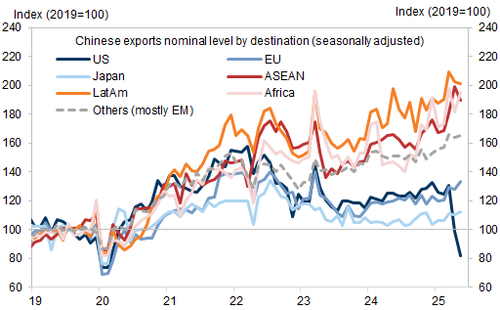



_0.jpg?itok=3UzjlXz6)













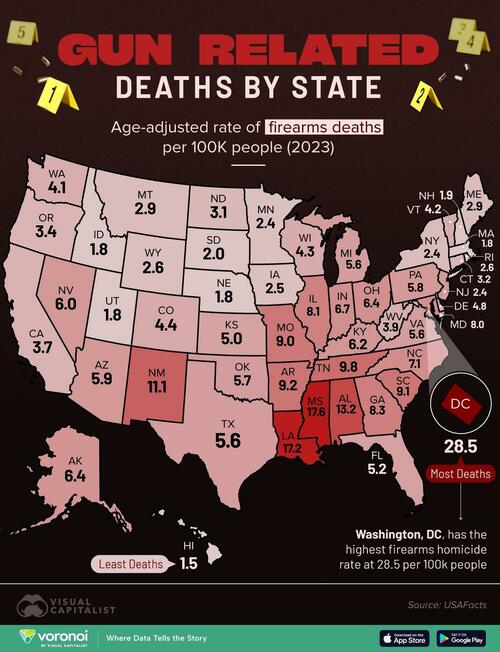





_0.jpg?itok=LysnDWMP)



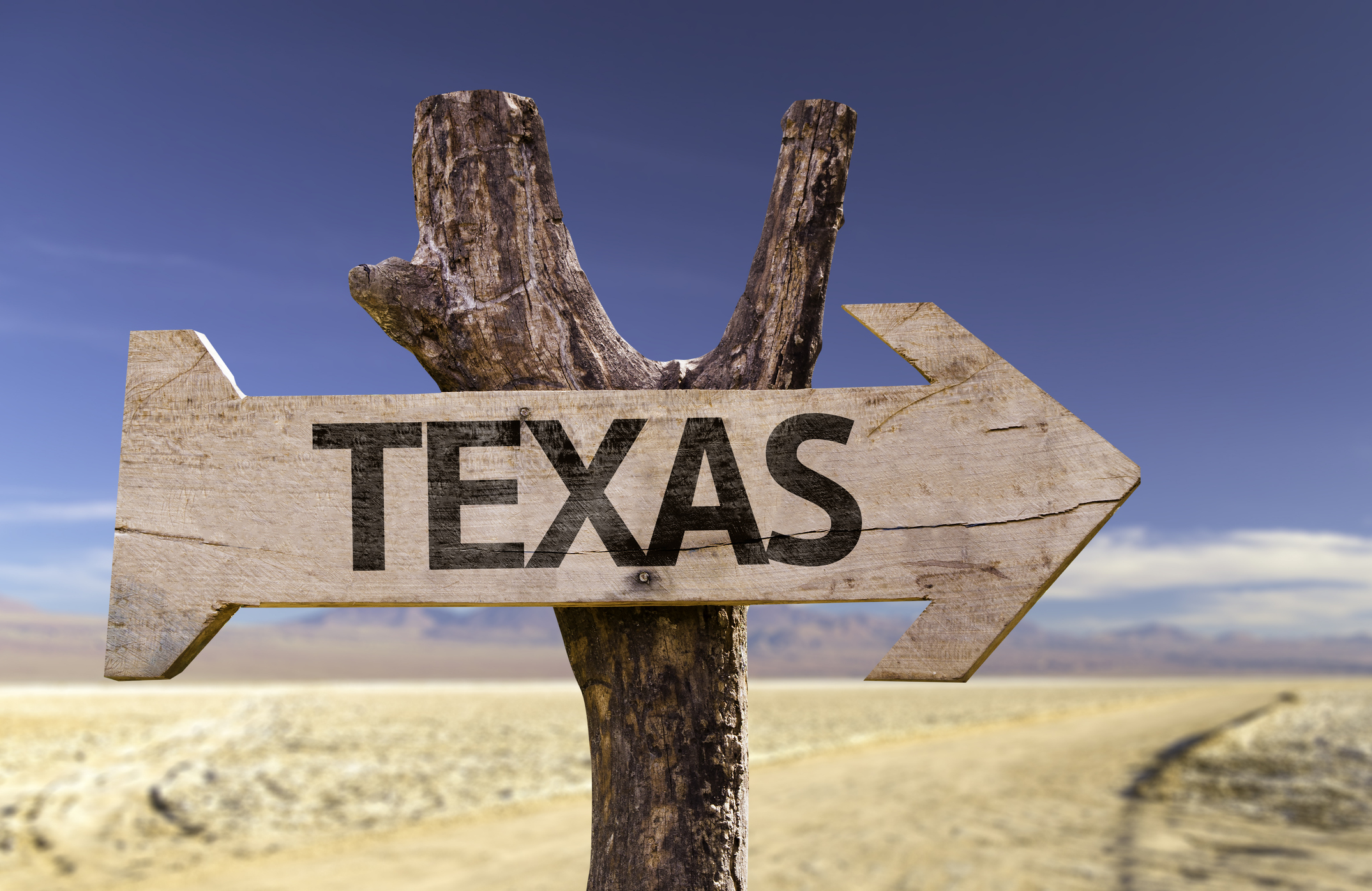

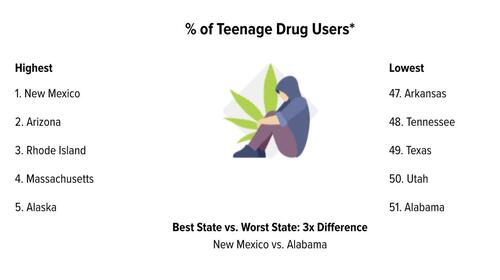




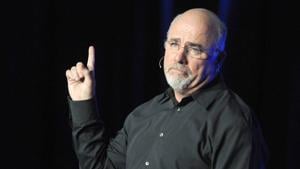

a.jpg?itok=xf_OMV6J)















_0.jpg?itok=uGoxHhdG)



_0.jpg?itok=FtsHXydZ)








